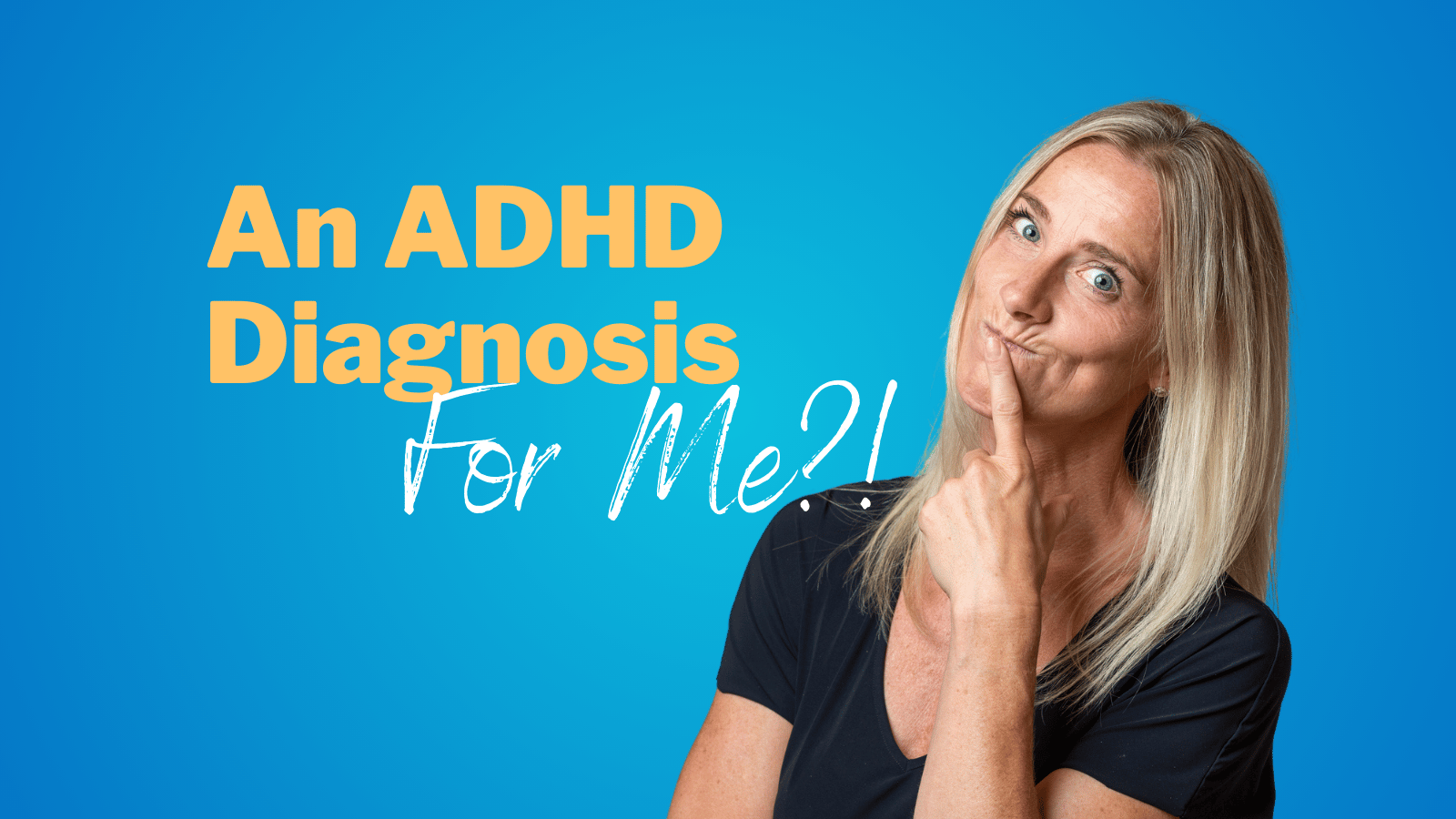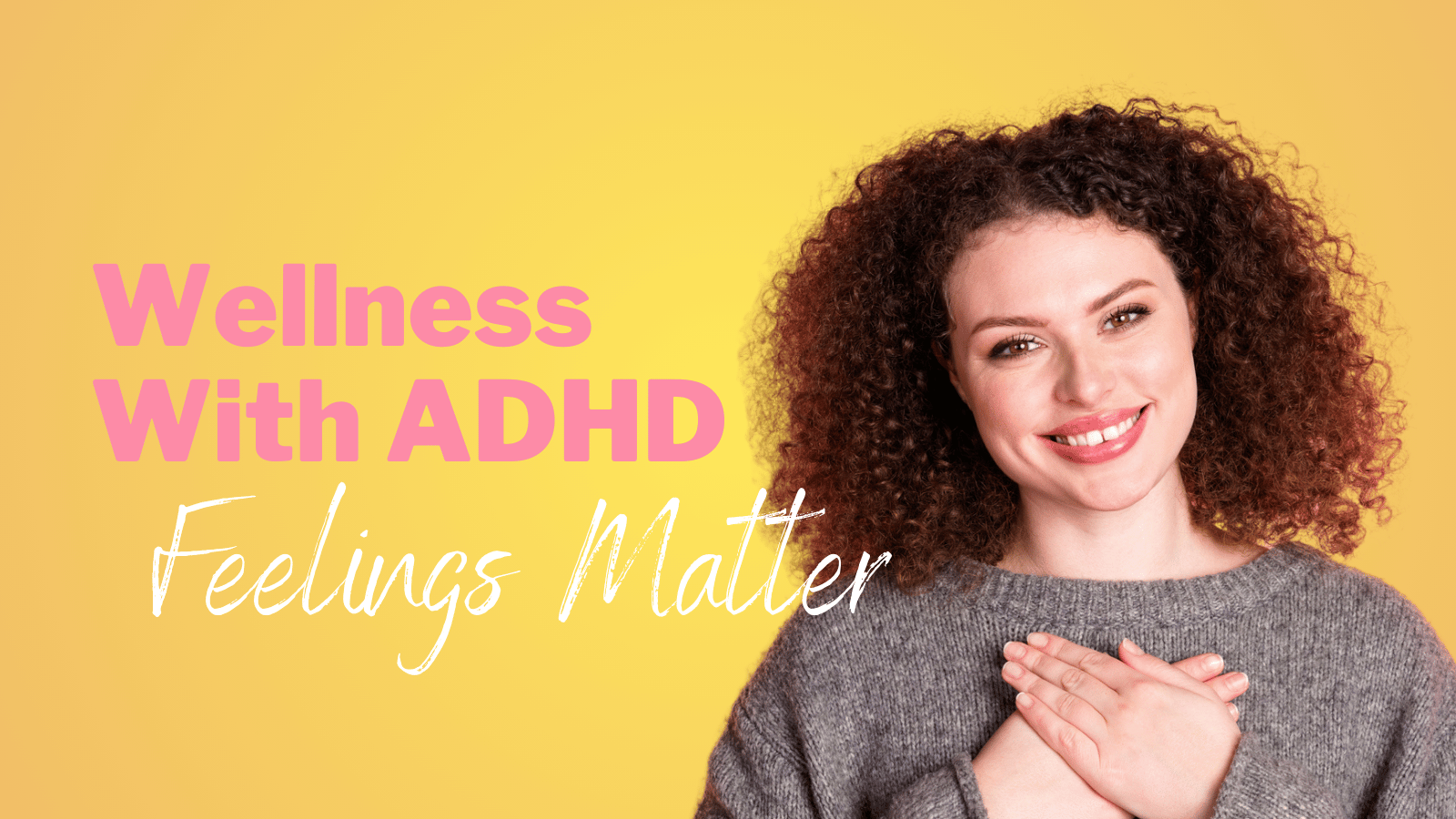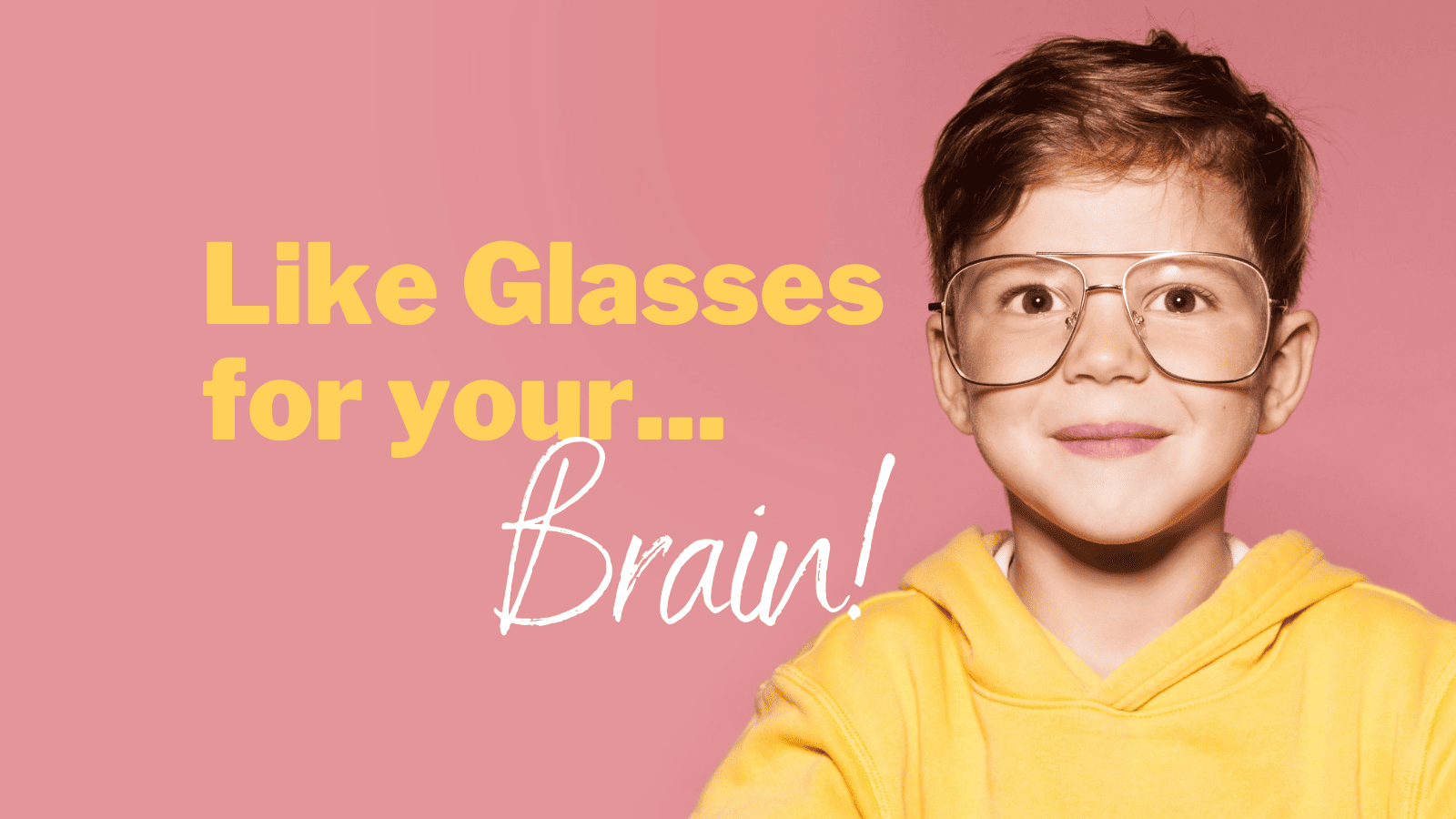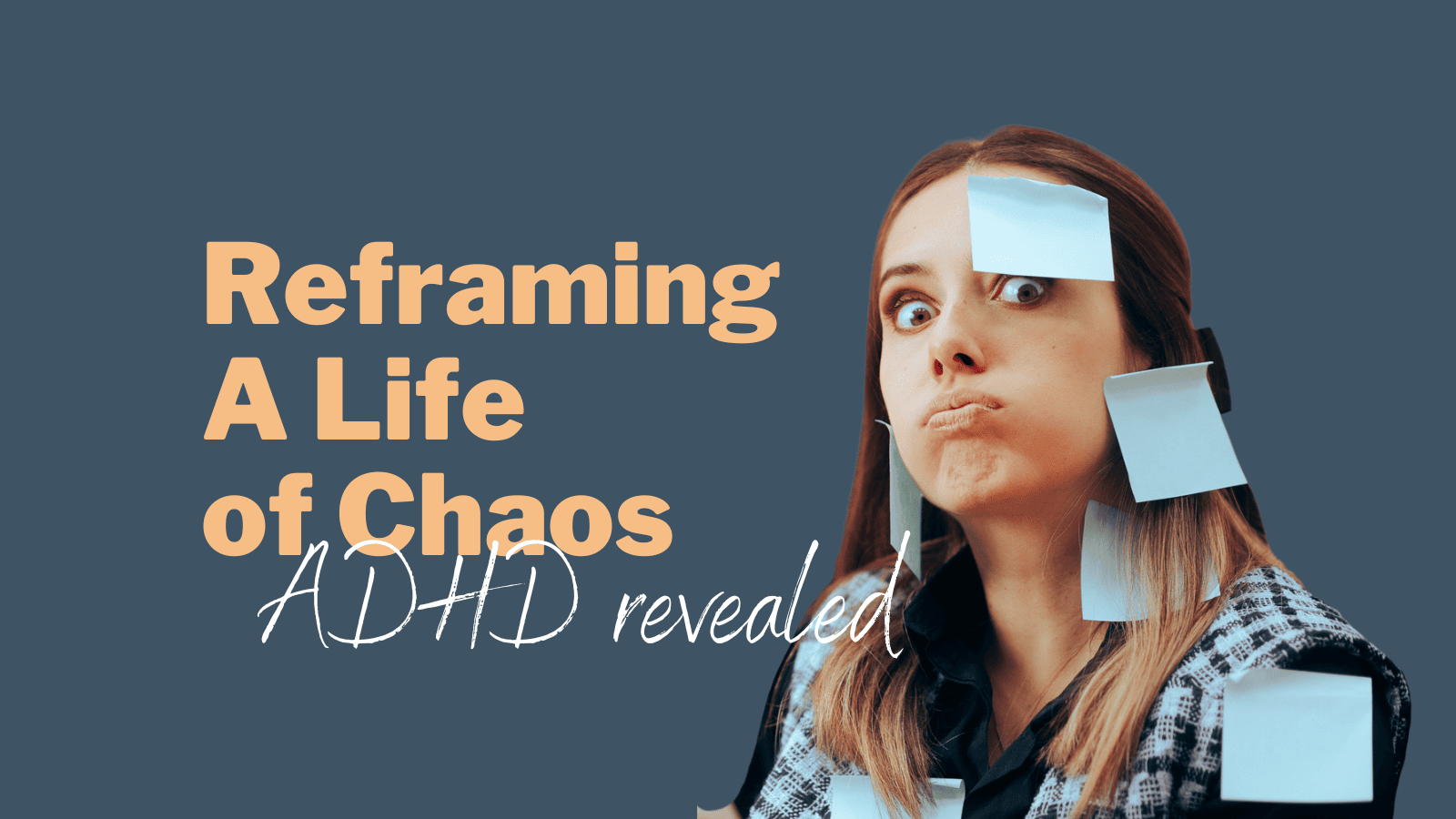“Miranda MUST be more mindful of completing her work”.
I must have read that comment a dozen times as I read and re-read the report cards that I pulled out of the envelope. My parents, now in their 70’s and in the midst of decluttering their house, had given me the report cards from my youth, dating back to my first year of school through to high school as they cleared out filing cabinets and boxes. And rather than a nostalgic look at years gone by, it had thrown me into an emotional spiral – which culminated in my late-ADHD diagnosis as a middle-aged woman, and several heavy bouts of therapy.
Assessment #1 – My Son
We are a family of neuro-divergents, some diagnosed (and I remain convinced some undiagnosed; not a clinical observation, moreso a judgemental one). Currently we have myself, my son and my grandson all with ADHD diagnoses living under one roof. It is at once chaotic, joyful and maddening.
I was a young single mother raising a son in the 90’s, and ADHD was, at least for boys, becoming a common diagnosis. When my son reached grade 5 it was clear that he needed help. His ADHD manifested in some of the most commonly understood ways – disruptions in class, fidgeting, lack of organization and impulsive behaviours. At that time in Alberta, family doctors were plentiful, there were resources available and luckily I had a supportive family who made sure that we were able to access the mental health supports we needed.
Quickly he was diagnosed using the criteria from the DSM IV, put on Ritalin, and then Concerta to rave reviews from his teachers. We would struggle later as he entered adolescence, and more as he stopped his medication as a teen and young adult. What strikes me now is how quickly teachers provided feedback, doctors were available, and the process was far simpler than what many parents face now.
Assessment #2 – My Grandson
Fast forward to 2023 and once again, I was going through the process of an ADHD assessment, but this time for my grandson who was in grade 2. As I slowly read through the assessment questionnaire, I began to see myself in many of the questions. Pair this with my entry into the magical world of menopause and all the hormonal upheavals that come with it, and you had a recipe for disaster. Or awakening. Or both! At work I was struggling with a heavy workload, and an inability to focus and complete tasks. Initially I was convinced that it was due to any number of factors – lack of sleep, menopausal brain fog, stress due to organizational changes. But as I checked off yes after yes on the ADHD questionnaire for my grandson, I began to wonder if it wasn’t something more.
As to why I hadn’t recognized any of this during the process of my son’s diagnosis and treatment – when you are in midst of the chaos with your attention singularly on your child, you simply aren’t paying attention to how those same characteristics also live in you. A grandchild however, provides a little distance so you can see both yourself and the child at once and recognize the similarities.
When my parents’ later ‘gifted’ me my old report cards, the dam burst and I felt a wave of emotions as I navigated my grandson’s assessment, my productivity lapses at work and my own memories as I read through the reports. I can read through the report cards more objectively now, but the first time I read through them I felt like I was flipping page after page of a young girl who was desperate for help, and simply not getting it. I was at turns angry, full of regret, and at times distraught. It is only recently that I can talk about this with others without feeling like I might cry.
Assessment #3 – Me?!
I turned to a mental health nurse through our medical clinic at work (I work at a post-secondary institution) and explained through tears that I thought I had ADHD and I was desperate to have it addressed. By this time, my stress levels had sky-rocketed as my procrastination at work had worsened, my direct supervisor was leaving due to the work environment and I was sure that if I didn’t find some kind of solution to my own productivity lapses, my job would be in jeopardy. I completed my own assessment and then came the difficult part of asking my parents to complete the parental assessment. Yes, now edging onto 54 I was having to ask my parents to assess me – my behaviours, my inclinations, those things which we had all just come to accept as my personality.
For any one who has been through an ADHD assessment recently, and especially as an fully-formed adult, the process brings with it doubt, self-judgement, and often, well-meaning but unhelpful comments from others. As a Gen-X woman who prided myself on my ability to tough out any illness or malady, I was struck with a type of medical-imposter syndrome and self-doubt.
“Had I simply watched too many TikTok videos where everyone was being diagnosed with ADHD?”
“Was this simply recency bias after completing my grandson’s ADHD diagnosis?”
“Was I simply looking for an excuse for a lack of productivity and laziness?”
“Was I REALLY that bad? I mean, I had been working successfully for years without a diagnosis.”
Not According To My Mother
The last point was one that I would hear repeated over and over again, especially as I tried to have conversations with my mother. As someone who I already had boundary issues with, an open conversation with my mother was difficult. From her point of view she didn’t want me to focus on the difficulties I may have had being undiagnosed, but to celebrate all that I had accomplished in spite of having ADHD. That outlook was her way of showing support.
What I needed from her, however, was an understanding that because of a lack of diagnosis, my life had been unnecessarily difficult. And that this wasn’t about blame (although at first I will admit it absolutely WAS about blame) but I needed to have my feelings validated. And HER need was that she needed to absolve herself of the guilt she felt about not recognizing my behaviour and difficulties for what they were. We were at an impasse.
Through many (many, many) therapy sessions I realized that I could control what I would and wouldn’t discuss with her. And that asking her to provide something she wasn’t ready to provide was an exercise in futility that kept me spinning in the same place. I had a choice – I could keep spinning and try to force her to provide me with the validation, or apology or recognition of the impact my lack of diagnosis had on me, or I could move on and continue my own journey of healing and self-acceptance. I decided to take the second path. Most days.
Next Steps
After my initial meeting with the mental health nurse I went back to my doctor to see about medication. Any discussions around medication are tricky. A myriad of lifestyle choices, genetics, and other medical issues combined with how knowledgeable your doctor is will influence the course of treatment. My doctor initially prescribed a non-stimulant medication that was being used to treat ADHD and she referred me to a clinic that specializes in ADHD assessments and treatments. But the wait list could be months. Or over a year. I felt dejected. I didn’t want to have to wait for a year to find a solution when I felt I was so close. Keeping in mind, at this point, I really didn’t know what a solution would look like.
When I called the clinic to inquire about my referral they confirmed it would be 6 to 12 months. “But”, they said, “there could be a cancellation.” That was my in. I put a reminder in my calendar to call every week. And diligently I did. Until frankly, I think they got tired of me calling and managed to get me in at the 2 ½ month mark. What this clinic provided was specialized and ongoing support through Group Therapy and weekly check-ins around medication. Through another more fulsome assessment I was put on a combination of stimulant and non-stimulant medication and began an 8 week group therapy program with others who were diagnosed with ADHD as adults.
This experience was invaluable, much of what was discussed was familiar to me, but having the experience of hearing first hand from others who were working, raising families, but struggling to find solutions to the very real problems of executive function and productivity was both enlightening and validating. We were able to share how our struggles impacted relationships, our work, our ability to enjoy our free-time and we were also able to share tips that we found helpful. All the while, we were under the guidance of an expert in this area who could explain the whys, and provide scientifically backed reasons for our behaviour, along with ways we could find solutions that worked.
Looking Back …With Empathy
I also used this time to reflect on how my ADHD had manifested in me outside of the annual report card comments. While from childhood to early adulthood I continued to display a concerning lack of time management, the more impactful behaviours were around impulse control. To this day I have to implement a structured financial monitoring system to keep my spending under control, as my go-to for a dopamine hit is filling up my Amazon (or any other online store) shopping basket.
COVID was a disaster. From purchasing squirrel huts for the squirrels in the front yard to an embarrassment of serums and skin-care products my every whim could be answered through online shopping. In my teen and young adult years, I struggled with low self-esteem coupled with a lack of impulse control around relationships. It was hardly surprising that I was a young single parent at 21. My romantic relationships were fleeting but passionate and mostly lacking in any real romance – and served again as a temporary answer to a long-term problem.
During those years, I struggled with food and drink over-consumption. In the 80’s and 90’s it was easy to drink your way through an evening with 2 for 1 specials and 50 cent drinks. It served both as a way to self-medicate my lack of self-esteem and confidence but also magnified my existing lack of impulse control. Even today, I am aware of when I’m using that glass of wine to self-soothe rather than simply enjoying a good glass of wine. When I’m hitting up the vending machine for candy every afternoon during a stressful week, I try to get back to tracking my food as a way of being more mindful about consumption.
Why So Late?
This post-diagnosis period for me was one of voracious reading, listening and looking up everything I could on late ADHD diagnosis in women. From articles to podcasts to online communities. It seemed to be a phenomenon born out of a lack of recognition of how ADHD might express itself in non-physical ways in young females. It was a generation of women entering perimenopause and menopause who were unapologetically focusing on themselves after years of service to their homes, spouses, and children. And what we were finding was both fascinating and rage-inducing.
In childhood, the ratio of boys to girls diagnosed with ADHD is about 3:1, whereas in adulthood that ratio is closer to 1:1, which suggests that females are simply not being diagnosed in childhood. In a survey of 1,500 women with diagnosed and undiagnosed ADHD, 94% responded that their symptoms worsened during perimenopause and menopause. And over half said that the greatest period of impact of symptoms on their lives was during their 40’s and 50’s. This explained why as I looked for a solution to hot flashes, my ADHD symptoms also became more evident, and also why my son and I struggled to find a medication balance during his adolescence when hormones are also wildly unstable.
As I consumed everything I could I was struck by a few things. First of all – the narratives related to ADHD diagnosis were a) The Poor Me narrative, where ADHD was the reason for everything challenging in life and the world just needs to adapt to this neurodivergence. OR b) ADHD is a Superpower, and never mind that we can’t keep our calendars straight, we are CREATIVE! And ENTHUSIASTIC!
There was little in the way of, “yes, this is a medical diagnosis, and yes, it presents certain challenges, but you CAN actually just get on with life (with a few adjustments).” In the age of social media, I suppose the algorithm only rewards extremes, but being able to recognize one’s self in the articles or stories in a way that feels authentic without being overly dramatic was proving difficult.
Today, 2 Years In
So now that I’m 2 years beyond my original journey to diagnosis, where do things stand?
I’m still employed – and continue to find ways to keep myself on task and engaged. I also recognize when I need a day to regroup after a particularly stressful period, and how to structure my tasks on a daily basis to maximize my productivity.
I am more attentive to sleep, to health and to making time for myself. While exercise is one of the habits that has the biggest positive impact on aDHD symptoms, I continue to be inconsistent with it. But I no longer think I have to do x amount of minutes every week and instead I use my Peloton app to try to fit in anything, whether it’s a 5 minute core workout, or a 30 minute spin class when I can. I also got a DOG! Which has had a remarkable impact on my physical and mental health – walking, and getting outdoors are both positive factors on the mind and body. Plus an evening of netflix is all the more enjoyable with a pup curled up in your lap snoozing.
I am medicated. Which has been life-changing for me. I no longer have to focus every molecule of energy on managing myself, my behaviour, and my mind. I think that was one of my most profound revelations, was just how much energy I had had to dedicate to trying to manage myself over the years, when it came naturally to neurotypical people. Some of my utmost moments of rage came when I thought about what else I could have accomplished if I could have redirected that energy to something else. But with that also came a high-level of personal awareness that has made me both more effective at home and at work, and frankly more empathetic (again, most days).
I’m trying to wean myself off social media, which had become a source of information, yes. But also a source of angst, and wasted time. I think my previous thoughts about the existing narratives around ADHD were a source of frustration for me, and much of how social media has been developed feeds into the least healthy traits around ADHD such as self-esteem issues, dopamine dysregulation, and time-management challenges. I have difficulties moderating some behaviours so for me, none is easier than a little. It remains to be seen how long my commitment will last.
In all, the journey continues, and as we navigate the assessment and treatment for my grandson I’m sure there will be many more hurdles and opportunities.
1 Miss. Diagnosis: A Systematic Review of ADHD in Adult Women. National Library of Medicine | https://pmc.ncbi.nlm.nih.gov/articles/PMC10173330/#:~:text=In%20childhood%2C%20the%20ratio%20of,et%20al.%2C%202020).
2 ADHD Impairment Peaks in Menopause, According to ADDitude Reader Survey. ADDitude | https://www.additudemag.com/menopause-symptoms-adhd-survey/#:~:text=For%20more%20than%20half%20of,and%20even%20fewer%20before%20then.








